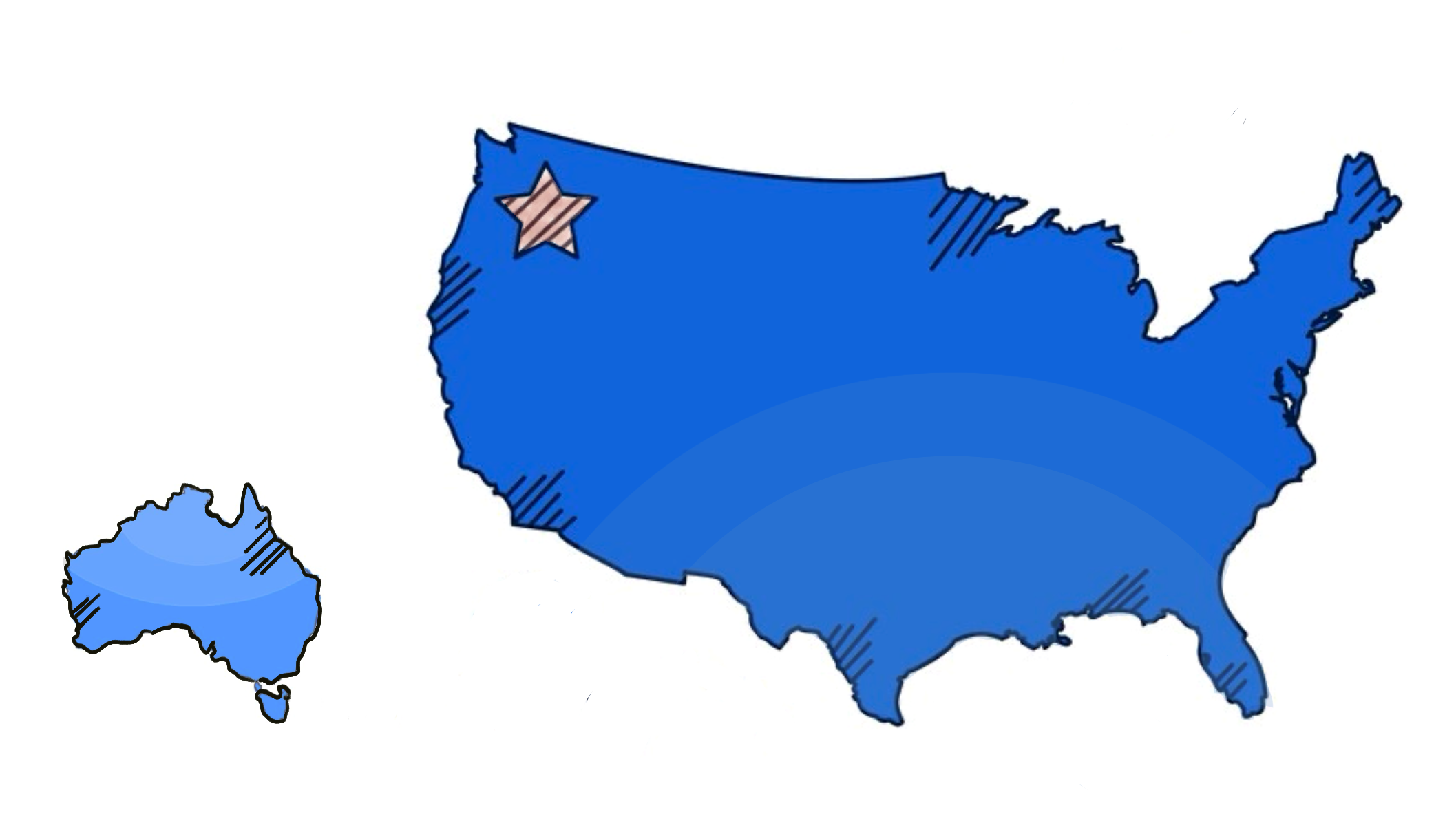Australia is, quite remarkably, the one country in the world that has a net migration gain in its exchange with the United States. For every butcher, baker, and candlestick maker which leaves our lucky country for life in the States, Australia gets back more than it gave. But not software engineers. Australia loses the best of those in droves. They all go to America, and often stay.
I’ve been sitting on this take for a while, but after a handful of conversations with visiting Australians, raising Series B, and seeing NVIDIA hit 5 trillion, I thought I should put it out there in HTML.
Australian programmers: get over here to the States.
Come see the show

It is an exciting time to be working in AI in America. If you have the chops and the ambition to join this all-in investment and programming frenzy—if you want to get in amongst it—start applying. Reach out and I’ll help you.
I left Canva Sydney just over 3 years ago, a month and change before the StableDiffusion and then ChatGPT releases. Obviously the last 3 years have been uncommonly eventful and innovative. But here in late 2025 it’s far from over. Remember the industry can keep scaling until at least 2030. This is the like the 1991-1998 Chicago Bulls run. The job’s not finished.
At work I’m seeing the early stages of the young decacorns (e.g. Cursor, Cognition) weaning themselves off the Claude and OpenAI APIs. They’re beginning to train their own models and run inference in-house. Open source models from China (e.g. Qwen 3 VL) are very good.
Outside of the LLMs-for-coding sphere, the startup landscape has hardly figured out what to do with this new stuff. Sure, valuations are high for a few, but this is nothing near consolidation.
What’s going on in the US software industry right now is something new, something rare. The internet may make it seem like a global phenomenon, but it’s not. To be working around it, attending events, conferences, sitting in coffee shops—especially in San Francisco—feels different. In Australia, AI is just an API.
Once this is all said and done, I think you’ll be glad you lived through some of it in America rather than saying home. What they say about companies applies here to the US AI industry: it’s a rocket ship. And hey, even if the naysayers prove right and this rocket is the Challenger, you don’t evaporate. You can just go home. You cannot lose.
Money talk
Beyond AI boom FOMO, some of you will see the appeal of the money. For a long time now the income boost from taking your skills and applying them in the States has been huge. The AI boom has likely intensified the difference. My first offer in the States (senior-level big tech) was $530,000 USD a year, or around $820,000 AUD1. Being a hayseed Aussie used to Australian salaries, I was a little rattled.
OpenAI recently gave a $1.5 USD million over 2 years bonus to over two hundred top performers. This was taken to be a nervous response to Meta’s poaching. Doing the conversion, that’s $1,158,507 AUD per year, as a bonus. And it’s not like the OpenAI stock price isn’t growing! Top CUDA programmers, in extremely high demand, get multi-million compensation packages routinely.
$250k, a good but unremarkable senior salary in SF and NYC, is $386,000 AUD.
Enough said?
The big pond

The talent pool in the States is unmatched. Everything you hear about the US software industry is true. I worked with some really excellent people at Canva, but Australia’s a small pond with a software industry over 100x smaller and offering uncompetitive compensation. If you come to the States and get into the top companies, you’ll surely find a new level of smarts and work ethic.
It’s also true that the general populations of SF and NYC (where I live) are full of remarkable people. Young people of all vocations pour into New York wanting something big from the city. Artists, entrepreneurs, filmmakers, models, journalists, activists, musicians, finance bros, tech bros, writers. San Francisco is unfortunately all tech people, but quantity has its own quality, and you gotta hand it to them: their city is where the future is created. Go there and get in a Waymo.
If you’ve never lived outside Australia, you could do a lot worse landing in the States as your first foreign home. New York City is indisputably the best city in the Anglo-sphere, despite being filthy and often depraved. If you don’t care for cities, SF has access to incredible nature that is just as good, if not better, than Australia: Yosemite, Big Sur, Sequoia, Lake Tahoe. (No good beaches though.)
For at least one hundred years now Australia has lived on other people’s ideas. It used to be the British who led us by the nose. Going forward, the future made in Australia will be made out of what’s invented in San Francisco, Boston, Los Angeles, and New York.
Playing devil’s advocate
To take the other side, when would you be better staying in Australia? I think there has to be quite a big roadblock to rule out a move, because moving to the USA is a two-way door. It’s not free to move to the States and then come back, but for Australian software engineers with our E3 visa it’s not, in the grand scheme of things, a dramatic cost.
I’d stay in Australia if moving would put too much stress on your family. If you are single and younger than 35 this likely isn’t the case. I’d also consider staying if work-life balance and the laidback Australian lifestyle are most important to you. If you don’t gel with the American work culture and don’t gel with your new city (SF or NYC), it won’t be a good time.
I also don’t want to ignore the competitiveness of the labour market. To land a good job in the States you’ll need a good resumé and strong technical skills. I’d say only the top 5-10% of Australian engineers qualify. Helpfully, p95 performance is easier than you think!
Get in touch
Although it’s entirely doable, leaving a job and going to work in the States is a big move! There’s lots of unknowns, which is part of what makes it exciting and worthwhile, but on the other hand, some of those unknowns are merely annoying.
Reach out if you have questions or want help landing a role. My company, Modal, is hiring. So you could end up working with me :)
I promise it won’t be dull.

-
I had only about 4 years experience! ↩